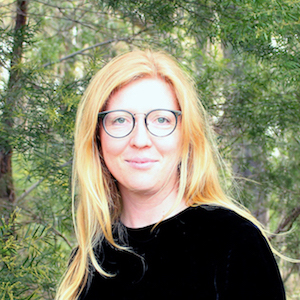
Past Events
Network Hosted Public Colloquium: Gender, post-truth, populism and pedagogies: challenges and strategies in a shifting political landscape.
Members of the International Gender, Social Justice & Praxis Network presented on their work, followed by an afternoon of round table discussions exploring ways that knowledge, authority, truth, power and harm are resurfacing and require deep, collective and sustained feminist intervention.
World Council of Comparative Education Societies Symposium: Supporting Research to Make a Difference: Reflections of the International Gender, Social Justice & Praxis Network (The Network) on Combining Activism and Research
This symposium presented work by the International Gender, Social Justice and Praxis Network, to bring together themes of researching for social justice. The symposium focused on the praxis-based methodologies framing the three projects presented (each of these projects is funded by the University of Newcastle). Such methodologies require collaborative and participatory approaches that bring participants together across difference in the struggle for social change and transformation. The symposium considered the requirements of praxis for developing spaces of reciprocity and reflexivity, for doing re-search differently and for bringing academic subjectivities together with activist orientations to the questions we collaboratively explore. This requires taking intellectual risks to respond to the significant challenge of translating research into practice in order to develop innovative approaches that impact on the educational inequalities that exist around the globe. The symposium explored how the praxis-based methodologies underpinning our projects can contribute to promoting the virtues of interconnectedness, nonviolence, peace, inclusiveness, improved quality of life and a better appreciation of the positive implications of interdependence within global citizenship. Network members presented insights gained from negotiating the tensions between activism and research and the development of resources that come out of research activities.
The Symposium included the following papers:
Building a Cadre of Facilitators of Workshops Dealing with Diversity in Sudan - Dr Gada Kadoda and Professor Sondra Hale
Neoliberalism, Gender and Higher Education: Developing leadership capacity for women in higher education - Professor Penny Jane Burke, Dr Gifty Gyamera, Dr Saajidha Sader, Professor Ronelle Carolissen, Professor Lebo Moletsane and Dr Nonhlanhla Mthiyane
Gender-Health-Education Council (GHEC): global pedagogies for practitioners - Associate Professor Lauren Ila Misiaszek
International Higher Education Symposium to Mark National Women’s Day Keynote: The Right to Higher Education: Gender and the Politics of Mis/recognition.
Professor Penny Jane Burke
In her keynote at the National Women's Day Symposium hosted by, Penny drew on feminist post-structural theoretical perspectives with a focus on the insidious workings of power and inequality across different higher educational contexts, while considering the politics of mis/recognition at play in possibilities for widening participation (WP) policy and practice.
The keynote address was followed by a World Café session world forum on access to higher education, with a focus on research and community engagement. During this session participants explore the following questions:
- What does research with and for communities mean to you?
- What are the benefits and challenges?
- How might we address questions of difference (gender, class, race etc) in the context of research with and for communities?
- How might we create opportunities for ethical research with and for communities?
The Symposium was attended by members of NGOs, community leaders, gender activists and academic researchers as well as students.
Gendered Pedagogy and Approaches to Decoloniality and Africanisation – A Colloquium
This colloquium explored aspects of decoloniality as distinct from, but related to, postcolonial ideas, which derive from centers of thought such as the Subaltern School in India/Indian diaspora (e.g., Gayatri Spivak). Decoloniality, on the other hand, was developed from the Latin American cultural complex spurred on by such theoretical figures as Walter Mignolo. It is, however, appropriate that our International Network on Gender, Social Justice and Praxis takes up this topic here in South Africa, home to one of the more vigorous centers of decoloniality. After all, it was at the University of Cape Town in 2015 when the #RhodesMustFall action was carried out by students. The action of removing a physical symbol, a statue of the essence of colonialism, Cecil Rhodes, was visceral, material. But it led to an attempt to address the matrix of colonialism in the curriculum. Thus, we are interested in the process of decolonializing the curriculum in Higher Education, not only erasing racism, for example, in all of its vestiges, but also indigenizing curriculum, and involving feminism and Freire with praxis and social justice spaces in mind. We also bear in mind the larger goal of confronting all aspects of colonialism that have touched psyches, undermined thinking processes, and dominated epistemology. The presentations and a roundtable grappled with many aspects of revealing, changing, and purging colonialized epistemology, pedagogy, and curriculum, with some presenters taking on their own whiteness, foreignness and failures in dealing with these processes within our neoliberal universities; while others are attempting to create spaces for decolonization. The last presentation presented an urgent case that questions our futures.
The Colloquium included the following papers:
Decoloniality, Gender and Pedagogies: Framing a Conversation - Professor Ronelle Carolissen, Dr Saajidha Sader & Dr Nonhlanhla Mthiyane
Re-Imagining the Decolonization Debates in South African Higher Education: What’s Gender Got to do with it? - Professor Relebohile Moletsane
Indigenising higher education curriculum: perspectives on class, ethnicity and gender - Dr Gifty Gyamera
Trans/Forming Pedagogical Spaces: Race, Belonging and Recognition in Higher Education - Professor Penny Jane Burke
Creating Spaces for Decolonization in Third Country Higher Education Contexts - Associate Professor Lauren Ila Misiaszek
False Starts: The Failure of U.S Neoliberal Universities to Decolonize Higher Education - Professor Sondra Hale
Urgent Sudanese Futures: Decolonial and Feminist Education - Dr Gada Kadoda
The University of Newcastle acknowledges the traditional custodians of the lands within our footprint areas: Awabakal, Darkinjung, Biripai, Worimi, Wonnarua, and Eora Nations. We also pay respect to the wisdom of our Elders past and present.
